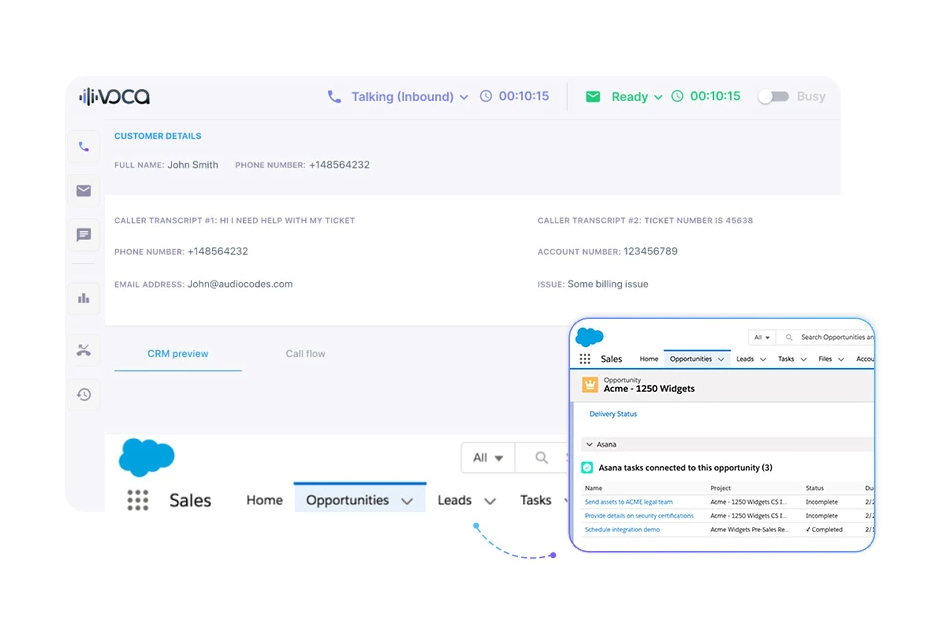
While features can be replicated, it’s the experience you offer to the customer and the reliability behind a solution that truly makes a difference. This is particularly true when it comes to contact centers, where always on communication and uptime are crucial.
For many industries, the ability to deliver outstanding service has become the key differentiator. I think back to my time at Enterprise Holdings, where a reputation for stellar customer service, consistency, and reliable vehicles set them apart in a competitive rental car market.
Customers trusted Enterprise because they knew that even if things went wrong, they’d be taken care of. That same principle applies today to contact center technology: the ability to deliver reliable communication technology, and consistent service is what builds lasting trust with your customers.
I think we can agree – if you’re selling CX, you better provide great CX too.
But let’s save the CX talk for another time. What you’re about to read is focused on the nitty-gritty of the tech that makes a Microsoft Teams contact center as reliable as they come. Let’s have a look.
Azure Native Integration: A game-changer for Microsoft Teams contact centers
Perhaps the most exciting prospect for companies looking to harness the full potential of Azure is the upcoming Power Model. This model, built on Azure Communication Services (ACS), offers fully native integration between a contact center and Microsoft Teams. What does this mean for your organization?
It means that rather than relying on third-party infrastructure or external APIs to manage calls, the entire communication stack can live within Azure itself, simplifying processes and reducing latency.
Azure Communication Services (ACS) is Microsoft’s CPaaS (Communications Platform as a Service), which provides voice, video, and chat capabilities. ACS powers Microsoft’s internal IC3 layer, the very same technology that underpins Microsoft Teams' voice and video functionality.
With the Power Model, businesses will have access to these SDKs, allowing for tighter integration and a more streamlined experience for both agents and customers.
By using an Azure-native solution, calls between customers and agents within Microsoft Teams are on par with any internal Teams communication. This eliminates the need for additional middleware and reduces the risk of communication breakdowns. Another significant advantage is a Microsoft Teams contact center with an Azure native integration leverages Microsoft’s 99.999 per cent availability for Teams Phone, providing exceptional uptime and reliability. For organizations that depend on their contact centers to always be available, this can be a game-changer.
What to consider when choosing Azure native integration
As more companies look to Azure to power their contact centers, it’s essential to select a vendor that understands the platform’s full potential. Azure Communication Services offers a broad range of microservices, and it takes technical expertise to stitch them together into a reliable, fully integrated solution.
The Microsoft Teams contact center vendor shouldn’t only be proficient in the ACS ecosystem but also have a solid engineering mindset to create a solution that is both scalable and robust. This ensures that as new features and services roll out—such as advanced speech technologies or AI-driven solutions—you’re prepared to integrate them into your customer experience.
Azure and Microsoft Teams: A safe bet for your customer experience
When it comes to choosing the right platform for your contact center, Azure isn’t just one of the largest players—it’s the largest, particularly in enterprise-grade solutions. With Microsoft’s continual investment in AI, cloud services, and communication technology, integrating your contact center with Azure and Microsoft Teams is a safe bet for long-term innovation and reliability.
We’re in an era where uptime, service experience are key, trust in Azure native contact center integration isn’t just a feature—it’s a strategic service advantage.
Voca Conversational Interaction Center – the Azure Native Microsoft Teams Contact Center
Voca CIC, a Microsoft Teams omnichannel contact center with built-in conversational AI, offers contact centers the same 99.999 per cent uptime and reliability as Microsoft Teams thanks to its Microsoft Azure infrastructure. The fast and scalable design enables rapid deployment and growth across departments, along with the flexibility of a usage-based subscription model.
Voca CIC (pictured below) effortlessly extends CX capabilities to every Teams user within the company, whether they are part of the main service desk or other departments beyond the traditional contact center.
Voca CIC is available as a 30-day free trial on the AudioCodes website, as a native app on the Microsoft Teams Store or Microsoft AppSource. Interested customers can build a conversational contact center flow in 5 minutes, including AI and omnichannel capabilities, along with a free phone number from AudioCodes for immediate evaluation

